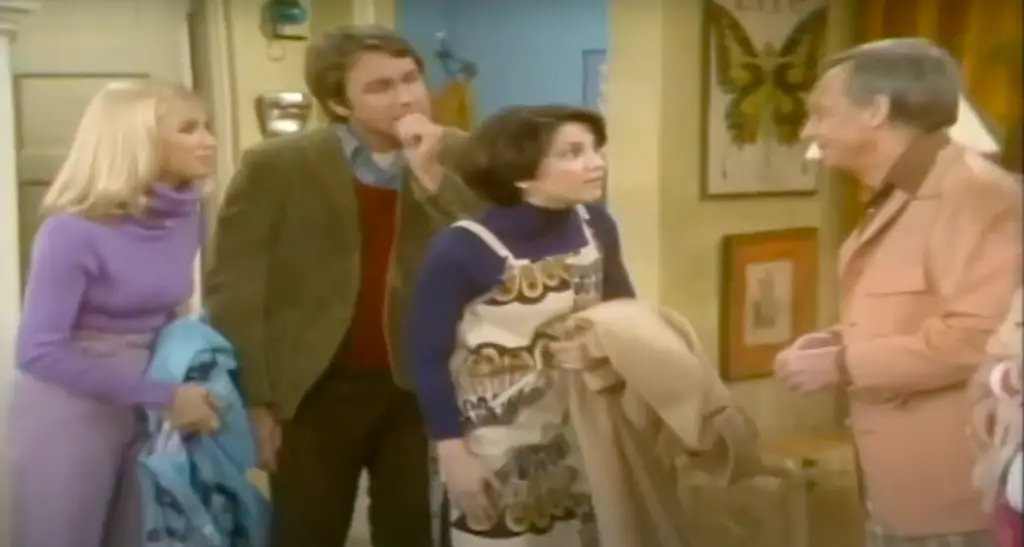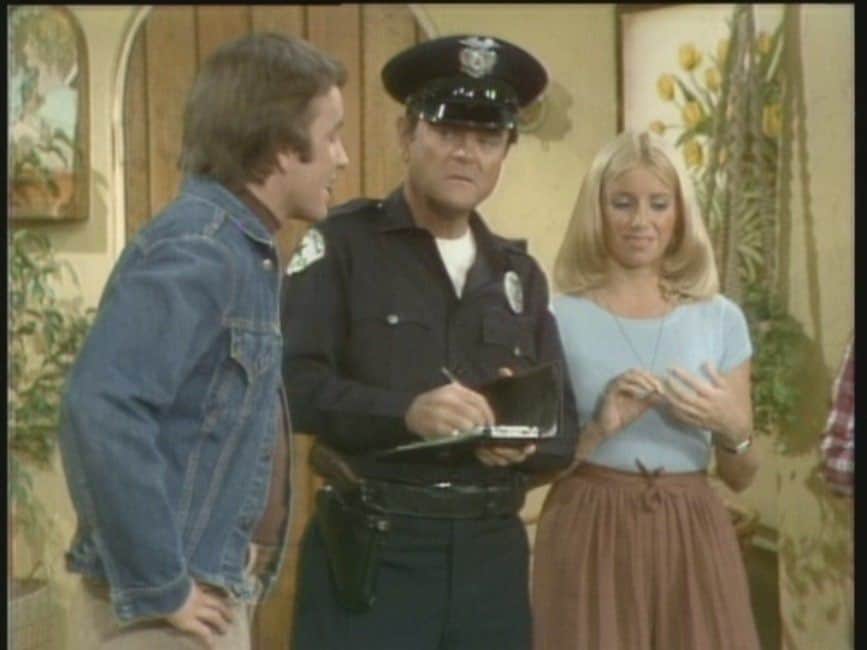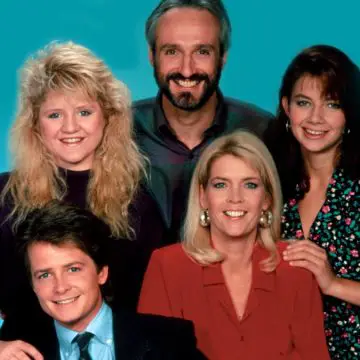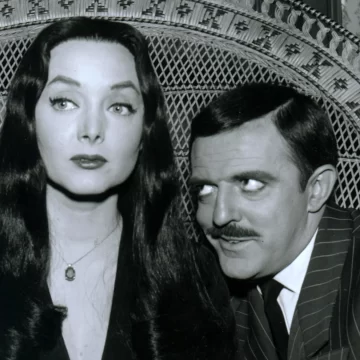Being the first post on the “Money” channel, I’m going to start off with a rather obvious sitcom to mine money lessons from: Three's Company. (That is, obvious if you're around my age. Plenty of generations, I realize, have missed out on the comedy gold that is Three's Company (1977-1984), though, yes, some parts of the show haven't aged well. And, by the way, if you've never seen this particular episode and are dying to know how it ends, never mind that the show is over 40 years old, I've got a spoiler alert below.)
And then as the blog matures, well, we’ll see what else I come up with. But for now, we’ll start with a pretty obvious lesson – if you’re behind on payments, don’t avoid paying – talk to your creditor and try and work things out.

In Three’s Company, Jack Tripper, Janet Wood and Chrissy Snow are three roommates, and they’re often getting in trouble due to misunderstandings.
And often these misunderstandings led to them being behind in paying their rent.
In the episode, “It’s Only Money,” which was the sixth episode of the first season, Jack, Janet and Chrissy are already one month behind on their rent, and they’re nervous about encountering their landlord, Mr. Roper, who throughout the episode, is trying to get a few minutes to ask them a question.
That question, they assume, will be:
Where’s my rent money?
Anyway, the episode centers around Jack, Janet and Chrissy (played so well by John Ritter, Joyce DeWitt and Suzanne Somers) discovering that their rent money, which had been left in an envelope, is missing.
Most of the episode centers around them trying to raise $300 in rent money (remember, this was back in 1977) and trying to avoid Mr. Roper, who keeps coming around to see them.
So what can we learn from Three’s Company about managing one’s money? Quite a lot, I’d argue. They made one big blunder, which I’ll get to, but the three roommates actually did do some smart things as well.
Today's "TV Lesson" Breakdown:
What Three's Company Got Right About Raising Money
They discussed asking friends for a loan or maybe an advance from Chrissy’s boss.
Neither ideas, they decided, were feasible.
They talked about selling belongings to raise money.
The roommates discussed whether they have anything of real value to sell. Chrissy half considers selling her grandmother’s wedding ring, but they decide not to do that. And then Chrissy has a plan.
Chrissy: Hey, why don’t we have a garage sale?
Janet: We don’t have a garage.
Chrissy: We could rent one.
Janet: With what?
Chrissy: With the money we make from the sale, dummy.
They considered applying for a loan from a bank.
Jack asks Janet if that might be feasible for her. But Janet doesn’t think she will have any luck.
Janet: I always have trouble getting loans, even though I go in there with ten impeccable references.
Jack: What’s the trouble?
Janet: They always check them out.
Jack then speculates that he might be able to get a loan from the financial aid department at his cooking school, and he does try, and the episode spends a bit of time on this, but he ultimately strikes out there, too.
That Three's Company Spoiler Alert...
So it turns out that the landlord Mr. Roper had been in their apartment earlier in the week to fix the sink. He saw the envelope marked “rent” money, and he took it – and forgot to leave a receipt. He had only been looking for the three roommates to invite them out to dinner with him and Mrs. Roper.

What Three's Company got wrong about raising money
Mostly one thing.
They just should have talked to their landlord.
The episode actually makes it pretty clear why the roommates didn’t just go to Mr. Roper and tell them they were missing their money. The rent they were paying for was for the previous month. They figured that if he believed they were two months behind, which they thought was the case, that Mr. Roper might throw them out.
Still, experts will always tell you that generally the best thing you can do when you’re behind on payments, whether it’s rent money, a car loan or credit cards, is to try and work something out.
Early on in the episode, Janet actually says, “Maybe we should just tell Roper.”
That was a good advice. It makes for much better comedy that they didn’t, but for the rest of us, in real life, generally, it's a smarter strategy to acknowledge to a creditor that we’re having trouble making payments and asking if we can have more time to catch up.
Often, you can work out something. It isn't like you're going to be the first person to be behind on a bill. You may be able to get on a payment plan or refinance a loan. Granted, it depends what bill you're behind on. Still, if you disappear on a creditor, that's usually when they think the worst and do things like send your bill to collections or turn off the power or send a lawyer after you. But if all you need is a little more time to catch up on a bill, or you can make a partial payment, you might find that they'll be more understanding than you would think.
Time may be money, but it often is a precious commodity when trying to pay a late bill, and so you should try to leverage it as much as you can. As Jack says when trying to avoid Mr. Roper, “We’re going to buy the only thing we can afford – time. We’ll go down to the pub and hide out.”
Where to watch Three's Company (at least at the time of this writing): Antenna TV. You can also find all eight seasons on Pluto TV, for free.






Matt Baron
Three's Company was a staple of my TV viewing diet, and I hope you can find a way to weave in the classic misunderstanding of Chrissy's wart with what Mr. Roper thought it was: a baby on the way (or not, since Chrissy was talking about trying to find a way to get rid of "it"). This entire series revolved around misunderstandings, which you aptly noted for this episode on rent. Also, the actor who played Mr. Roper (Norman Fell) was a landlord (Mr. McCleery) in The Graduate, too. I guess that may have typecast him?
The TV Professor
Somehow didn't see your comment until just now, the next day... I had forgotten about "The Graduate." Norman Fell also played a telephone repairman in "The Rat Race" (a 1960 movie starring Tony Curtis) and a radio technician in "Inherit the Wind" that same year. So he probably was typecast for some time as kind of a fix-it man. Norman Fell had an amazing career as a character actor.